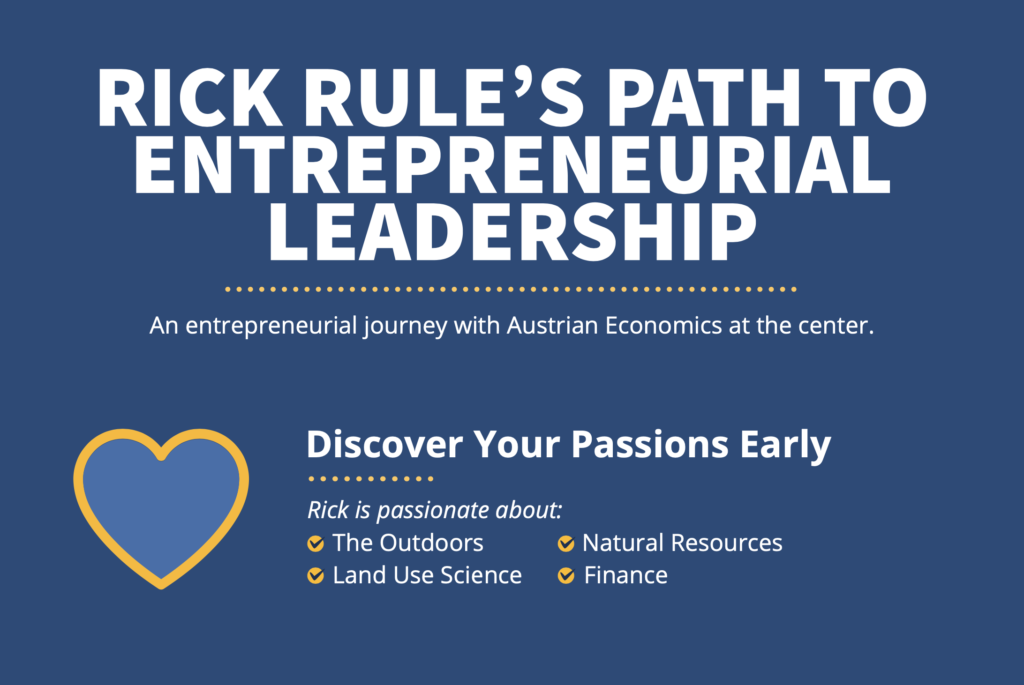39. Rick Rule: Deep Understanding of Markets Opens a Pathway to Entrepreneurial Leadership

Rick Rule is CEO at Sprott US Holdings. His lifetime focus on natural resources finance enabled him to carve a unique pathway to entrepreneurial success. Like many entrepreneurial journeys, Rick’s had some twists and turns. Here are some of the key stages.
Key Takeaways and Actionable Insights
Find out early what you love. Rick enjoyed the outdoors, nature and therefore natural resources, the associated science of efficient and effective use of natural resources, and finance. All of us have a combination of likes and preferences that may stimulate us but may not initially appear to present us with an entrepreneurial recipe. But as Curt Carlson explained in episode #34, combining knowledge from different people and fields can result in compounding insights.
Combine Knowledge In New Ways. Rick combined natural resource science with principles of corporate finance, specifically debt and equity finance for extractive industries. As a result of the special properties of natural resource markets, and firms’ needs for customized financing, an opportunity niche emerged. Rick’s application of his special combination of knowledge placed him in a competitively advantaged position.
Learn By (Hard) Experience. Rick learned not to confuse a bull market with brains, as he puts it. He did business through a complete commodity market cycle in the 1970’s through the early 80’s, experiencing volatility and ups and downs first hand. Theory is no substitute for experience. Nevertheless, his knowledge of Austrian Business Cycle Theory, Austrian Price Theory (“the cure for high prices is high prices, and the cure for low prices is low prices”) granted him a superior perspective in interpreting market signals.
Develop Deep Market And Customer Understanding. In his focus market, Rick developed a business segmentation that focused on participant firms of a defined size (<$250MM market cap). He studied those customers and understood their circumstances. The consequence of limited information flow (data about these firms did not flow easily between conventional market analysts), was that the firms had limited access to capital. Rick was able to overcome these information gaps, making him a preferred supplier of scarce finance.
Identify A Need You Can Fill For Your Carefully Selected Audience In Your Carefully Selected Market Segment. The business model came together in a way that Rick describes as “lender of last resort to high-quality management teams in high-quality companies that were not popular” and were therefore capital constrained. In addition, Rick’s understanding of business cycles and commodity prices further strengthened his confidence in lending when others would not, the market rewards for which turned out to be high.
Combine Empathy, Trust and Courage. Rick confirmed the E4E emphasis on empathy as an important skill for entrepreneurs – primarily, in his case, empathy for the customers whom he financed. He sought to combine empathy with trust: in a market where information is scarce, it is imperative to have trust in the sources. “Without trust,” says Rick, “I have no information, and therefore I can not make decisions.” The third emotional attribute he identified is courage – the courage to have the conviction that your model indicating a future upcycle or price rise is well constructed, and not to second-guess it during the time that the trade is underwater.
We’ve summarized these journey milestones – and the Austrian foundations underlying them – in this free PDF download.
DOWNLOADS & EXTRAS
The Rick Rule’s Path to Entrepreneurial Leadership PDF: Our Free E4E Knowledge Graphic



Responses